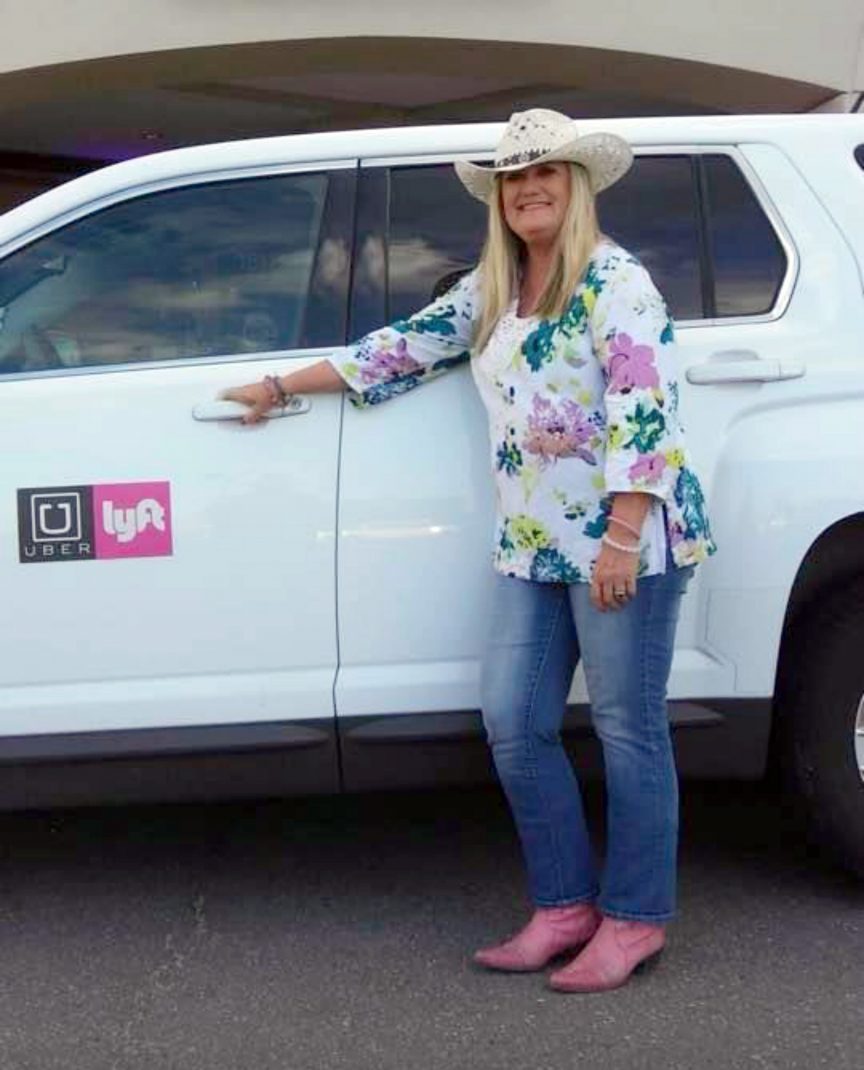Rhonda Denman is a 63-year-old woman who is on a roll, literally! With Uber expanding to every parish in Louisiana, she is taking full advantage of the perks of setting her own schedule and earning residual income in the process.
After working for CenturyLink for 37 years, Rhonda retires on September 7, 2018, and five days later she starts driving for Uber. She recalls, “I was at the DMV in West Monroe and I saw a good friend of mine sitting in the car waiting on someone. He and I started talking and he told me he was driving for Uber.”
Rhonda went home and researched the driver requirements. “You have to undergo a background check and your car must meet certain criteria,” she said. Denman is referring to criteria such as the vehicle must be 10 years old or newer, the vehicle must have at least four doors, and seatbelts for at least four passengers. In addition, drivers must be able to pass a criminal background check, along with the expectation of having a clean driving record, valid insurance, possessing an in-state driver’s license, at least three years of driving experience, and be at least 21 years of age. And with that, Rhonda accepts her first ride and begins to gain notoriety as the “woman in the hat.”
Although the aforementioned criteria listed is Uber’s requirements, the state of Louisiana now has its own set of requirements, thanks to the passage of House Bill 527 in early July, which now allows ridesharing throughout the state.
Before now, there was not a statewide set of regulations for ridesharing companies like Uber and Lyft, which connects drivers who utilize their personal vehicles to people who book rides via an app. Prior to July, ridesharing was only provided in the cities of New Orleans, Baton Rouge, Shreveport, Lafayette, Monroe and Lake Charles. Now, there is a clearly defined framework for the companies and drivers to operate within throughout the state.
The law places “transportation network companies” under one regulatory authority within Louisiana’s Department of Agriculture. Moreover, 1 percent of gross receipts from all rides is collected, which is then returned to the local jurisdiction where the rides take place. It’s a payoff for both the state and rideshare drivers. The statewide coverage also serves as a great benefit to rural residents, who previously could not benefit from the service. “I used to not have coverage past Sterlington,” said Denman. Without the newly enacted state law, a lot of rural communities would have been left out.
“Now, we can travel anywhere within the state and accept rides. I rode through a small town the other day just to test it and I saw requests for rides.” Denman also relishes in the fact that she feels she benefits her community on a daily basis. “I love forming relationships with passengers. I have really had an opportunity to truly help others.” Denman has received requests for rides from all kinds of people — nurses who just ended a late night shift, a daughter whose father was experiencing a medical emergency, a mother whose child forgot their lunch, elderly patients who need rides to their appointments, and even celebrities who have been in the Twin Cities for appearances.
Denman encourages anybody who is looking to serve their community, work on their own schedule, and make extra money to sign up through the Uber website. She also offers up this advice, “Make yourself identifiable. I have the signs on my car and I always wear my boots and a hat. I also dress up my car for the holidays.”
And despite national ridesharing horror stories, Denman says she’s never had a bad experience while driving in the northeast Louisiana and encourages others to push skepticism to the side. “Just do it. It’s great extra income and if you’re an outgoing person it’s great!” Denman is riding her way into financial freedom as a Gold Level driver with outstanding ratings and earning driver rewards as an Uber Pro. When asked how long she plans to drive for the ridesharing service, Denman replies, “Until I can’t drive anymore!”








